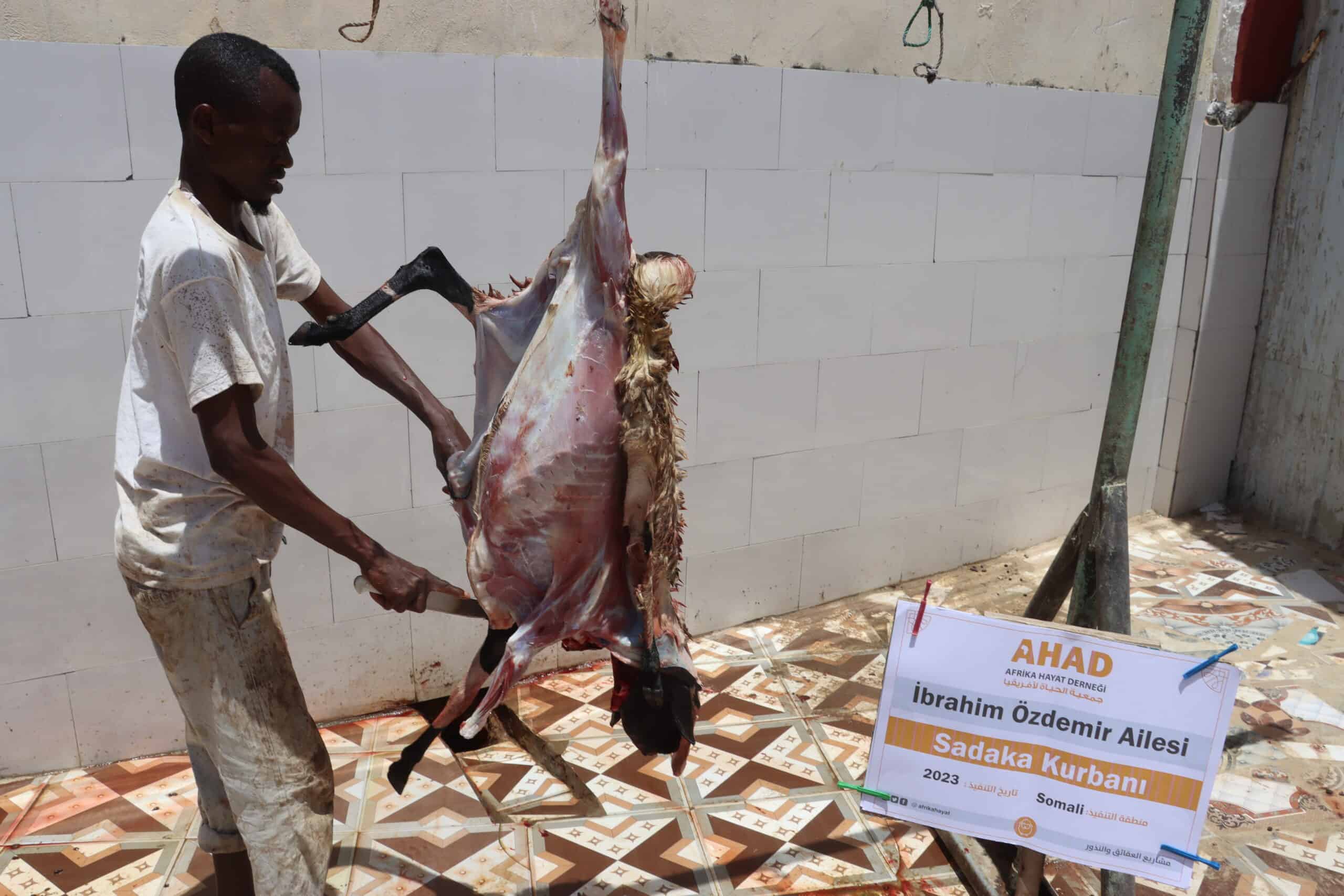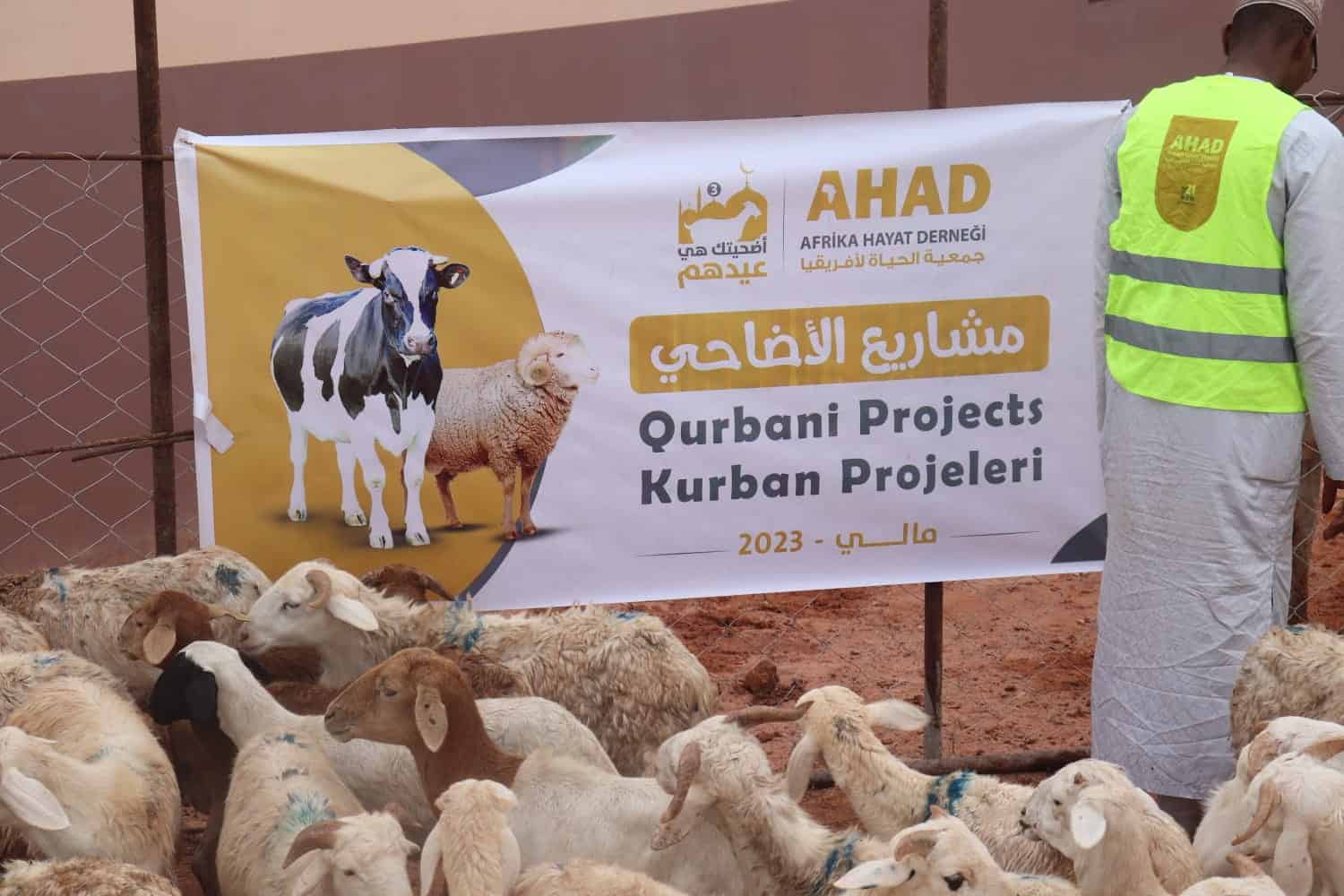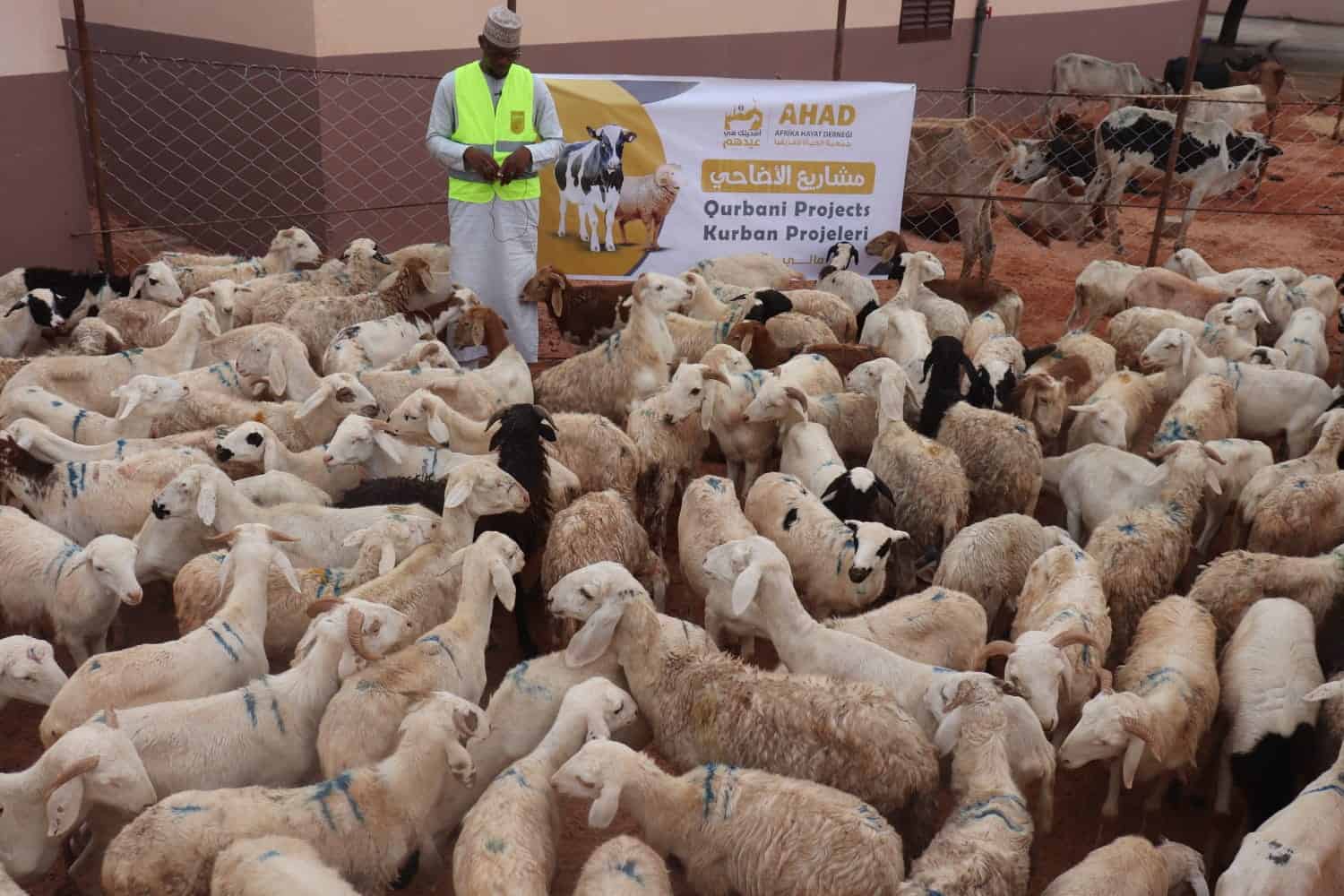Sacrifice is a religious cult performed by Muslims on the days of the Blessed Eid al-Adha, during which they slaughter an animal of a specific species, divide its meat and distribute it to the poor and needy. Sacrifice is an expression of obedience to Allah and personal sacrifice, strengthening human ties and cooperation between members of the Muslim community. In this article, we will answer the question of whether sacrifice is obligatory for Muslims
The meaning of sacrifice according to religious teachings
Sacrifice according to the religious teachings in Islam means personal sacrifice and drawing closer to Allah by slaughtering an animal of a specific species on the days of the Blessed Eid al-Adha. Sacrifice is considered an expression of obedience to God, willingness to sacrifice and provide assistance to the poor and needy. Sacrifice promotes human ties and cooperation between members of the Muslim community.
Is sacrifice obligatory for Muslims
Sacrifice is considered a desirable duty in Islam for Muslims who are capable of it. Performing the sacrifice is one of the best good deeds that a Muslim can do on the Blessed Eid al-Adha. A Muslim must strive to choose the right animal and be careful to follow the rules and regulations of the sacrifice in order for it to be correct and acceptable to Allah Almighty.
Rules and conditions of sacrifice
The rules and conditions of the sacrifice include several things, including that the sacrifice must be one of the permitted animals and of the species considered one of the seven types of sacrifice, and that the animal must be slaughtered by a Muslim and by a pure hand in a correct manner and at the specified times. The animal must also be faithful to the face of God, be in good health, and its share of the sacrifice must be taken to the poor and needy.

Is sacrifice obligatory for Muslims
Conditions for the health of the victim
The conditions for the health of the sacrifice include several things, the most important of which is that the animal should be pure to the face of Allah, and that it should be one of the types allowed for sacrificial animals. Also, the animal must be in good health and not have any pronounced defects. The animal must be slaughtered by a Muslim, by a pure hand, in a correct manner and at the specified times.
Who should perform the sacrifice
The one who must perform the sacrifice is every adult and Sane Muslim, who has the financial capacity for this. This category includes people who have the possibility of buying and sacrificing an animal to the Almighty. Performing a sacrifice is a mustahabb and is considered one of the acts of worship by which a Muslim brings himself closer to Allah and expresses his sacrifice and humility before him.
Judgments about the victim
The provisions of sacrifice in Islam include several important points. These points include the quality of animals allowed for the victim, since the animal must be healthy and not have any defects. It is also clarified how to properly slaughter the victim, since the slaughter must be carried out in the name of God and in such a way as to ensure the safety and altruism of the victim.
The quality of animals allowed for sacrifice
The quality of animals allowed for sacrifice is characterized by certain conditions that must be met. The animal must be healthy, free from visible and internal defects. It is advisable that the animal be sheep, cows or goats, and it is not permissible to perform the sacrifice on other objects such as sheep and shabraw cows. It is also required that the animal be by the amount of a day.
How to properly slaughter a sacrificial animal
The sacrifice must be properly slaughtered in accordance with religious teachings. The animal must be slaughtered by a skilled and qualified person, and the animal is slaughtered by placing it towards the Qibla, drinking some water and sincere intention. The air cord and the main blood vessels of the neck are cut quickly and with a sharp ax to ensure a quick slaughter and less pain for the animal.

Religious benefits and advantages of the victim
Eid al-Adha offers many religious benefits and advantages. It promotes unity and solidarity in the Muslim community, as people participate in this important religious event together. Acknowledging God’s presence and appreciating his many graces is also part of these benefits. In addition, sacrifice contributes to strengthening social ties and deepening understanding and empathy between people. So, Eid al-Adha can be considered an opportunity to strengthen social and spiritual ties in the Muslim community.
The role of sacrifice in promoting trust and community solidarity
The sacrifice is considered an opportunity to strengthen trust and solidarity in the Muslim community. Where people participate in the distribution of meat and assistance to those in need, which strengthens social ties and deepens understanding and empathy among members of society. This charity and charity work is considered a model of cooperation and mutual assistance between Muslims, and promotes cohesion in society.
The spiritual benefits of offering sacrifice
The spiritual benefits of offering sacrifice are centered on Muslims expressing their appreciation and gratitude to Allah Almighty and showing sacrifice and devotion in his cause. By offering sacrifice, Muslims strengthen their spiritual ties with God and worship him in such a way as to serve as a reminder of their humility and recognition that everything comes from God and by his will. Sacrifice also strengthens the ability to spiritual discipline, personal strength and religious piety.
Problems and questions about the sacrifice
Some Muslims may raise questions and problems about the sacrifice, such as whether it is obligatory for Muslims in the modern era, and whether they can perform the sacrifice in alternative ways. These questions can be related to the current challenges people are facing, such as economic difficulties or health conditions. Muslims should consult competent scholars to get answers to their questions and the right guidance in slaughtering the victim.
Is sacrifice obligatory for Muslims in modern times
Questions are being raised about whether sacrifice is still obligatory for Muslims in modern times, given the challenges and difficulties that people face nowadays. Muslims should consult with competent scholars to get accurate answers to this question and the right guidance regarding the implementation of the sacrifice.

Can Muslims perform sacrifice in alternative ways
For Muslims who face difficulties in performing the sacrifice in traditional ways, there are some alternatives they can look at. Muslims can donate an amount of money to contribute to the distribution of meat to the poor and needy in their community. They can also perform sacrifices in poor countries or needy areas in cooperation with trusted charitable organizations. Muslims should consult with competent scholars to find out whether these alternatives are acceptable and meet the Sharia provisions.
Conclusion
In conclusion, it can be said that the sacrifice is obligatory for Muslims who are able to perform it, and it occupies an important place in Islam. Sacrifice is not just an ancient tradition, it is an opportunity for joy, solidarity and strengthening of social ties. Muslims must follow the legal conditions to perform it correctly, and they can resort to acceptable alternatives if they are unable to perform it by traditional methods.
Tips for performing the sacrifice correctly
Prepare in advance for the sacrifice and choose the right animal in accordance with the legitimate conditions.
Make sure that the health and cleanliness of the victim and the absence of defects in it.
Slaughter the victim properly by following the Shariah methods and slaughter directions.
Meat and sacrifices are distributed to the poor and needy, neighbors and relatives to strengthen solidarity and social ties.
Try to be present and participate in the process of distributing sacrifices and make sure that it reaches those who deserve it in a fair and orderly manner.
Sacrifice and strengthening of social ties
Sacrifice plays an important role in strengthening social ties in Muslim communities. By distributing meat and sacrificial meat to the poor and needy, neighbors and relatives, solidarity is strengthened and social ties are developed between members of society. In addition, individuals feel happy and satisfied when participating in the process of sacrificial distribution and helping others.
You can visit the website of the AHAD Association to see the projects it is carrying out.
Related articles:




